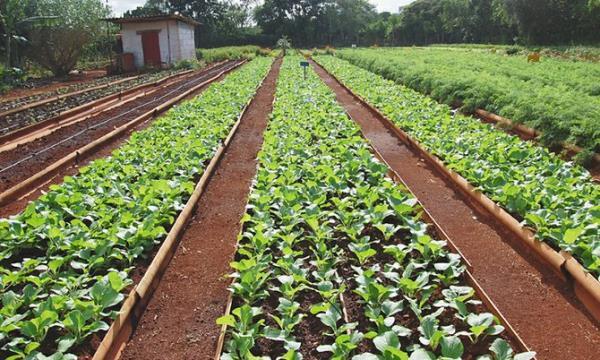Organic farming to increase national food production
Cuba
Friday 11 September 2020
FJ
In Cuba, vegetable production reaches 1.2 million tonnes per year on organic farms (Photo: tribune242.com).
In Cuba organic farming occupies a key position in the government's strategy to increase national food production and successfully navigate the difficult circumstances imposed by the COVID-19 pandemic.
It has been 50 years since scientific research was first applied to organic farming practices in Cuba. In the late 1980s organic farming gained ground on the island, giving rise to what was later known as the urban farming movement.
Organic farming is booming not only in rural areas, but also in big cities where nearly 75% of the country's population live. Currently, more than 707,000 gardens and nearly 147,000 suburban farms are part of the national movement to increase family self-sufficiency and food production at the local level.
"Organic farming and urban agriculture are deeply linked and constitute a viable alternative. Cuba has allocated 8,362 hectares to the cultivation of fresh vegetables with organic practices," said Elizabeth Pena, who holds a doctorate in science agriculturalists and researcher at the Cuban Ministry of Agriculture.
"Production reaches 1.2 million tonnes of vegetables per year on organic farms, including intensive gardens, greenhouses and high-tech farms."
Seed production is one of the priorities of some 2,200 cooperatives linked to the agroecological movement at the national level. Much attention has been paid to soil fertility, environmental impact and agro-climatic conditions for the development of organic farming.
Scientific expertise and indigenous knowledge have enabled significant progress in organic farming. Growing production will improve the country's food sovereignty.
source : xinhuanet.com





